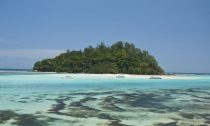
A British family is leaving their comfortable life in London in order to pursue something more. The Seath family, including Karolina, Barry and their two children, are about to move to an island you probably never heard of in a bid to help replenish and revitalize the area’s coral reef, which have been ravaged by the rising sea temperatures off the coast of Africa’s smallest island.
The island in the Seychelles, measuring just 400 metres long by 300 metres wide, will play host to the family’s land-based coral farm, which will only be the second of its kind in the entire world — the other being on Australia’s Great Barrier Reef.
“We are just a normal husband, wife, and two kids, living the sort of life that most others do… but we felt the need to make a positive change for ourselves, our children, and the world we had largely taken for granted,” Barry Seath said.
“So we have sold our home and parted company with most of our worldly possessions.”
Barry says he’s taken several vacations to the Seychelles, and each time the Seaths witnessed the slow deterioration of the reefs as they went snorkelling around the island’s coast.
“Every time we visited, we noticed the coral was getting worse and worse,” he said.
“All the tourists say the same thing. They love the beaches, but are really disappointed with the coral. They expect these lush coral reefs, but what they actually find is lots of coral rubble.”
More than 15 years as the head of a London recruitment firm was enough for Barry, who decided a change was needed so he could show their two daughters an enviro-friendly way of alternate living.
After making that decision, Barry partnered with coral experts at the Marine Conservation Society Seychelles in order to build and develop the island’s new farming facility, which is scheduled to take just three months and cost around £25,000.
Aside from the environmental sustainability aspects of their new endeavour, Barry says the family also hopes to bring more visitors back to the tiny African nation as its tourism-dependent economy has been devastated by the coronavirus pandemic.
“Our long-term goal is to show everyone that—with just a relatively small investment—you can make a serious impact on the marine environment that will in turn boost the tourism industry. It should be a no-brainer.”










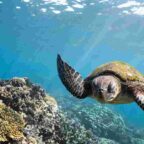
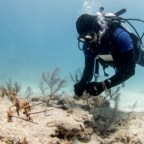
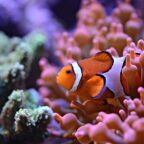
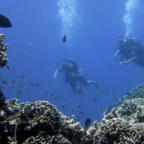

Social Profiles